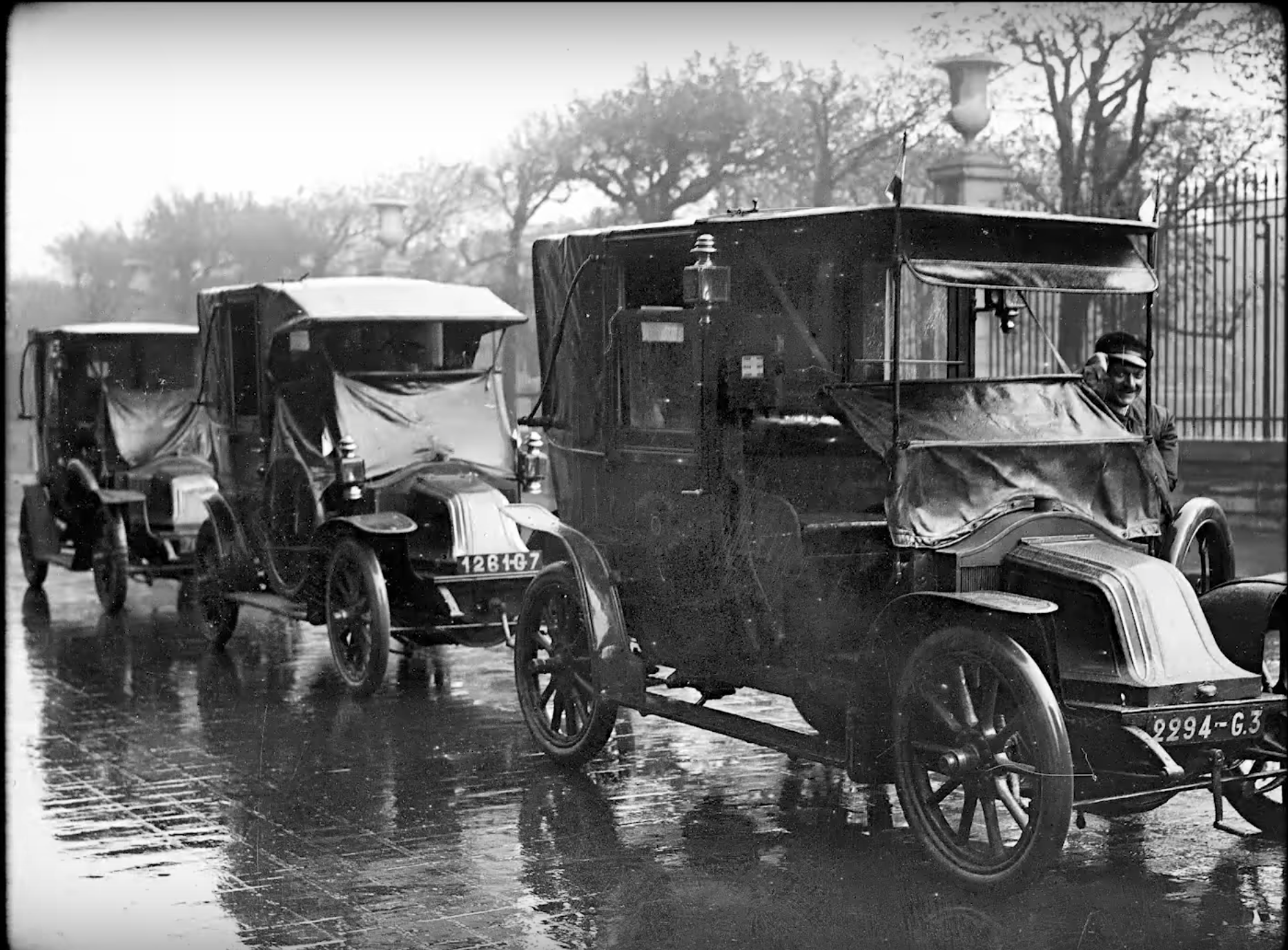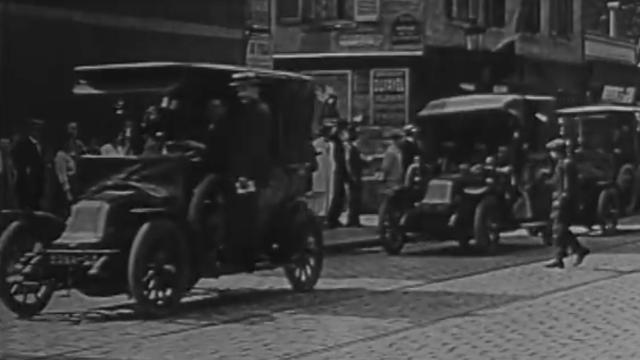Screenshot: British Pathé (YouTube)
Under the thick cover of the night on September 6, 1914, a group of Renault AG1 Landalets gathered in near the military complex of the Place des Invalides in Paris. The drivers were agitated, anxious, afraid for their lives and worried about what would happen to them when they reached their destination. A convoy of 250 left the plaza single-file and met up with a second convoy on the way, each taxi carrying five soldiers per vehicle. They were going to war.
The going was slow. With cars averaging a top speed of 20-25mph, the journey along National Road 2 took two days to complete, but it was the only option due to clogged railways. Their mission was to be kept secret as they journeyed to a location thirty miles outside of Paris.
Nearly 5,000 troops arrived on the front lines on September 8, most of them dazed by the luxury of having ridden in an actual taxi cab for the first time in their lives. Once there, however, they quickly gathered their resolve and took off to face the Germans. It was those 5,000 men who turned the tide of World War I through their unfailing motivation. They joined the ranks of exhausted soldiers and fought back against Germany so fiercely that the Germans were trapped; with no escape, they slowly squandered their resources and lost the war.
All because of those soldiers in their top-heavy French taxis with 1.2-litre cylinder engines that puttered along well through the night.

Screenshot: Autoblog (YouTube)
Or, at least, that’s the story we’re always told.
The reality of the Taxis of the Marne is a lot different than the legends would like us to believe. Much like Paul Revere’s mad dash to warn colonists about the impending arrival of the British, five thousand men in French taxis did not actually entirely change the course of war. Lyn MacDonald, in her book 1914, describes what truly happened to the French taxis in that battle. They turned into a rallying point, a source of motivation that soldiers could use in the darkest nights in rain-damp trenches: if the Taxis of the Marne defeated the Germans in one battle, I can do the same in this one.
When the taxis arrived at the Marne, the French soldiers were tired. The Germans had spotted it and one of their generals, Alexander von Kluck, decided to a little improvisation. Instead of holding his own line, von Kluck chased after the retreating French soldiers and left a wide gap between his and another German army. French commander-in-chief General Joseph Joffre, whose troops were not quite as exhausted as presumed, launched a counter-attack on von Kluk’s then-exposed flank.
The Germans might have been able to hold off the French, but the British Expeditionary Force joined the fray, much to the shock of von Kluk. Suddenly, the Allies weren’t just easy targets; they were a force to be reckoned with.
Tides turned. Known as the Miracle of the Marne, the near-defeated French troops managed to ward off an undefeatable enemy. And the taxis arrived just in time to become part of that miracle.

Screenshot: Autoblog (YouTube)
Most of the 5,000 soldiers didn’t actually see any action. The taxis dropped them off in the rear of the French flank in the aftermath of a battle that killed nearly 500,000 men between the Allied Forces and the Germany army. They effectively contributed nothing to the actual fight.
But the taxis brought with them a boost in morale. The French had sent for help, and 5,000 men responded to the call in the best form of transportation they had available: the taxi. It wasn’t a militaristic victory but a psychological one that came to represent the unfailing solidarity of the French. The image of the taxis rolling down National Road 2 to defend their land filled all of France with a sense of national pride that redoubled their efforts and gave the French a rallying point whenever their fight began to seem futile.
So yes, you might be able to argue that the taxis of the Marne did change the fate of WWI – just not in the way the history books like to report it.
